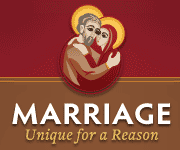Thank you for this thoughtful exchange.Let that sink in for awhile, and then I'll respond.
I would continue to make the natural law argument, though I would ask for an assist from those with greater wisdom on this site how, without faith, we convince those who in their separate religious traditions do not ascribe personhood to the zygote. I DO think that argument possible as a matter of reason, I would just like to see it elaborated by the Church and our best Catholic scientists and ethicists as to why personhood is associated with the zygote, as distinct from a point of earlier or later development be it viability or birth.
I assume the best argument runs something like (1) before the zygote, the Divine material is unassembled and does not factually exist in any empirically identifiable way as separate and (2) selecting any point after the zygote is arbitrary and inviting of a dangerous slippery slope that invites qualitative life assessments that inevitably are traced to power, not reason or faith. That works for me, but is so far unconvincing to my Methodist and many Jewish brothers and sisters.
So, if there is more to the reason-based argument, I in sincerity ask both that the readers of this thoughtful site -- and it is a joy on the Internet to read something other than name-calling -- make it as fully and as widely as possible in the ultimate service of my hypothetical book answer to Justice White, and even more importantly, to a nationwide effort led by our finest, most eloquent churchmen, and I mean this as a sincere compliment to the well spoken Charles Chaput, for example, for a human life amendment that would definitively make our natural law argument into constitutional fact and law.
Until my fellow members of the body of Christ are prepared to take up this work in earnest, then, the best the law is capable of is to be entirely -- and I do mean entirely -- quiet. The law ought not be biased, as it presently is, against our reason-based natural law argument, nor as Ely suggests, is the law capable of claiming our natural law position until we have successfully incorporated it by Article V or equivalent constitutional means.
Professor Kmiec Responds
I only just noticed since the post is so old, but Prof. Kmiec responded in comments to one of my recent protests against his new line of legal reasoning. I wrote this. And he responds with this rather astonishing answer:
Subscribe to:
Comment Feed (RSS)

